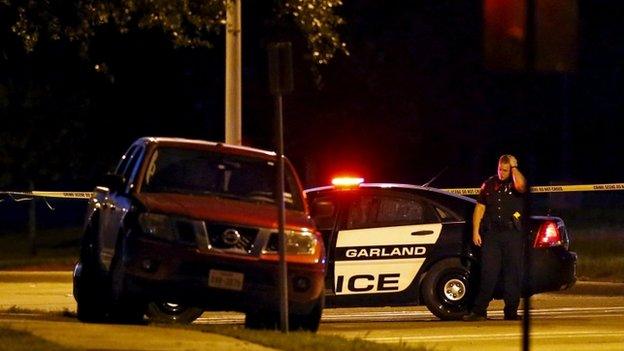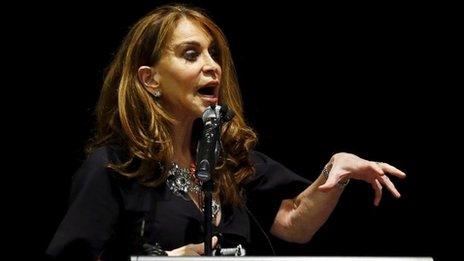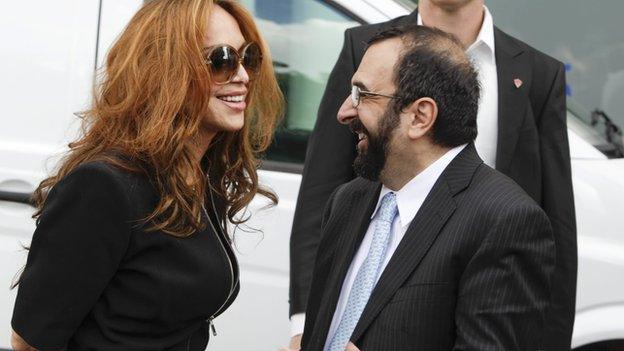US man sentenced for plot to behead right-wing blogger
- Published

Conservative blogger Pamela Geller said she had spent tens of thousands of dollars on security measures
A man who plotted to behead a conservative American blogger in an Islamic State (IS) inspired attack has been sentenced to 28 years in prison.
David Wright, 28, was convicted in October of conspiring to kill Pamela Geller, one of the most outspoken critics of Islam in the US.
He planned to attack Ms Geller in New York after she organised a cartoon contest mocking the Prophet Muhammad.
At the court in Boston, a judge said Wright had "embraced a monstrous evil".
Wright, who is from Massachusetts, was also found guilty of destroying evidence and providing material support to IS.
He plotted the attack with his uncle, Usaamah Abdullah Rahim, and a man from Rhode Island named as Nicholas Rovinski.
Their plan was never carried out.
In 2015, Rahim lunged at Boston police officers with a knife and was shot dead.
Rovinski has pleaded guilty to conspiracy and will be sentenced later this week.
Wright wept in court and asked for forgiveness from Judge William Young. "I want to apologise to law enforcement to the extent that my words or failure to act put them in danger", he said.
But, in a statement, Ms Geller said: "There has been no indication that he has given up these beliefs."
Referring to Wright by an alternative name, she said: "It is impossible to overstate the devastation that Daoud Wright has brought to my life and that of members of my family."
"He forced me to spend tens of thousands of dollars on security measures in my home, guards when I appear in public, and numerous other precautions. He terrorized our lives."
Ms Geller is the co-founder of the American Freedom Defense Initiative (AFDI), which she says was formed to stop the "Islamisation of America". AFDI is listed as an anti-Muslim group by the Southern Poverty Law Center, a civil rights group.
She played a key role in organising a conference on cartoons of the Prophet Muhammad, where two gunmen were shot dead after opening fire outside the venue in Dallas.
In 2013, she was banned from entering the UK. At the time, a government spokesman said individuals whose presence "is not conducive to the public good" could be excluded from entering the country.
- Published4 May 2015

- Published4 May 2015

- Published26 June 2013
